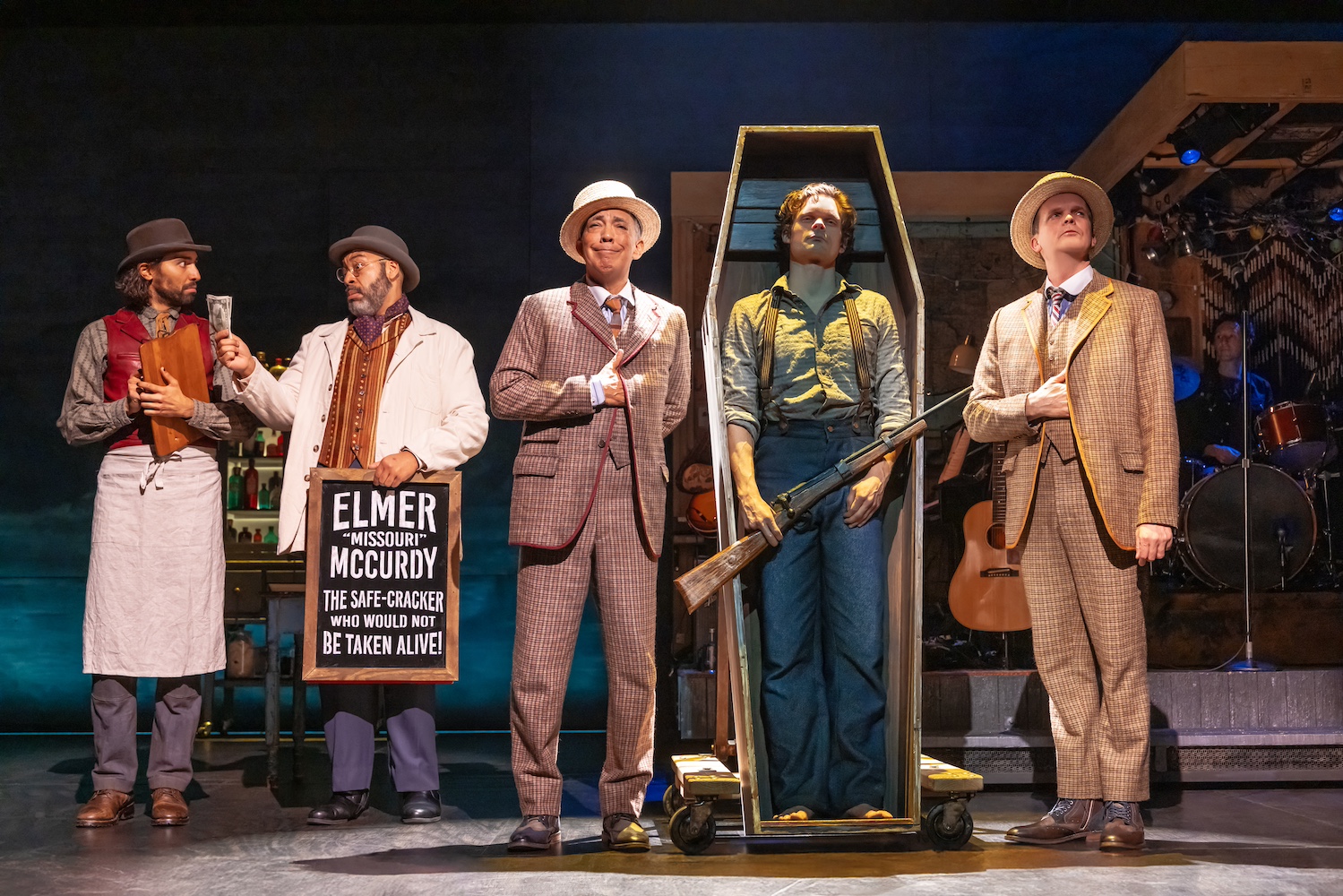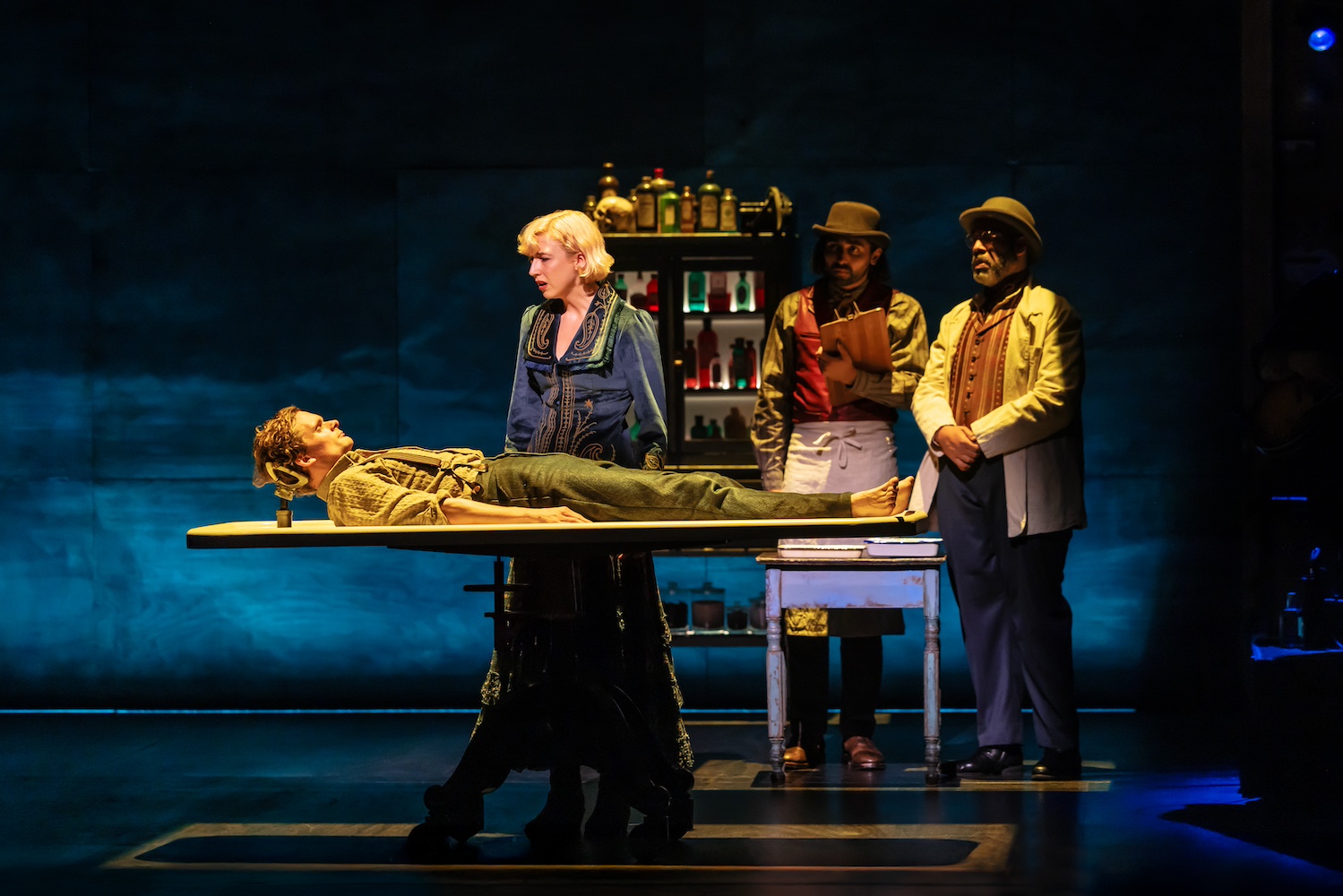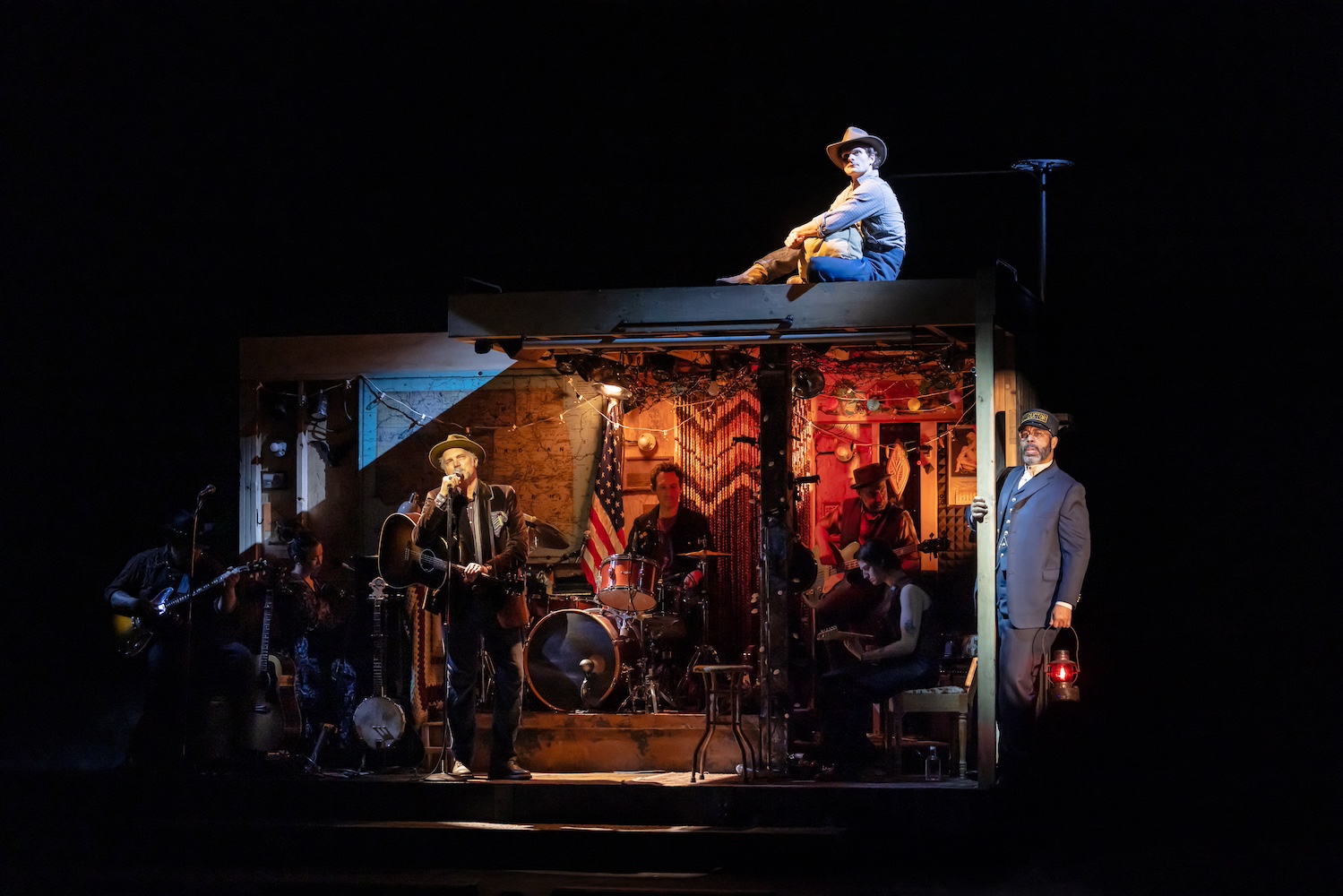*****/***** (five stars out of five)
How many Broadway musicals can trace their origins back to a macabre and bizarre occurrence on the set of the 1970s action TV show “The Six Million Dollar Man”? The answer should be “none,” but the new musical, Dead Outlaw—which opened last night on Broadway at the Longacre Theatre—can claim that improbable mantle. And almost as unlikely as its origin story is Dead Outlaw’s arrival on the main stem following a successful 2024 Off-Broadway run at the Minetta Lane, for which it garnered numerous accolades, including the Drama Desk Award for Best New Musical. Despite its success, most critics considered it far too esoteric for mainstream audiences, and unlikely to move uptown. But, it has now transferred gloriously, bringing with it the creativity, energy and humor that delighted downtown audiences.
Most of the show’s success can be laid firmly at the feet of the brilliant David Yazbek, who conceived the work (and wrote the music and lyrics along with Erik Della Penna), and Itamar Moses, whose touching and amusing book made an implausible story real and meaningful. This team, which was behind 2017’s The Band’s Visit and its 10 Tony Awards, is a powerhouse that measures up to the greatest creative teams in musical theater history. Moses’s book carries the story forward briskly and logically with Yazbek’s songs always meaningful, never used as filler, fitting in perfectly.

The story of a brokenhearted boy, Elmer McCurdy (the absolutely brilliant Andrew Durand), whose childhood is shattered by tragedy and rejection, leaving him emotionally untethered, Dead Outlaw follows teenage McCurdy as he lurches off across early 20th century America, riding the rails, searching for purpose. Unfortunately he’s already psychologically damaged, prone to alcoholic binges and violent outbursts, such that when he finds unrequited love in the form of sweet, small town girl, Maggie (Julia Knitel), he impulsively destroys it. Fleeing his mistakes only leads him into bigger ones, and he ultimately becomes one of the most bumbling bank robbers the American West ever saw. Frontier justice leaves him in the morgue and that should’ve been the end of the story. But, an unscrupulous and cash-poor coroner sells McCurdy’s unclaimed (and debt-ridden) corpse and he becomes a sideshow attraction for the next 60 or so years . . . until being discovered in a carnival ride being used for the set of, yes, “The Six Million Dollar Man.” McCurdy’s story is absurdly unlikely, but one anchored in truth and uncovered by the questions emerging from the shocking discovery of his body in the Long Beach Pier amusement park where it was a haunted house prop.

Of course, the creative elements alone don’t make the show work. This production, helmed by the prolific David Cromer (who directed at least four other plays this season, including Good Night, and Good Luck), is blessed with the same magnificent cast from the Off-Broadway production, including the always excellent Thom Sesma, and with top-notch performances by Dashiell Eaves, Eddie Cooper and Trent Saunders, all in multiple roles. Just as important in this production is the band, a hard-driving roadhouse country-rock, almost punk (‘Your mama’s dead/ your daddy’s dead/ your brother’s dead/ and so are you!”), sextet, front and center in just about every scene, on a bandstand that gets pushed around the set (Arnulfo Maldonado) and even spun around to double as a boxcar at one point. Led by the charismatic and talented Jeb Brown—who also serves as narrator and occasional secondary character—the band is the heart and soul of the production, reflecting McCurdy’s inner turmoil more than mere atmosphere, and providing an emotional commentary on the absurdity of the proceedings.

But the musical’s real pathos come from the romantic leads. Rarely has heartbreak been so palpable on stage as when Maggie, Elmer’s love interest, realizes that his inner demons have stolen him away from her. Julia Knitel is so relatable and earnest that our heart breaks with hers as she identifies his body after his long absence. And Durand’s visage, not one to be compared with a matinee idol, is a plaintive wail—we read both pain and obfuscation in the confused and tragic McCurdy, who achieved an immortality he never could have dreamed of . . . and one that could quite possibly garner a Tony in his name.
Dead Outlaw. Open run at the Longacre Theatre (220 West 48th Street, between Broadway and Eighth Avenue). www.deadoutlawmusical.com












